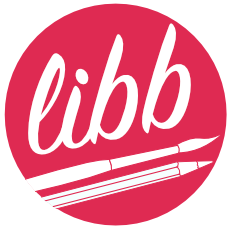If it’s worth doing, it’s worth half-assing. Don’t get caught in the details of trying to do something perfectly if it would benefit you more to do it at all.
I like this summarized as “don’t let perfect be the enemy of good enough.”
Writing things down, using the pen and paper I always carry with me. Doing so, I don’t try to make literature or to sound smart, I just write things down as they come. Later on I’ll read them back, that’s quick, and decide if they’re worth using or if I strike them out and forget about them.
- It frees the mind (no need to waste brain power to remember stuff)
- It helps brainstorming freely, even by oneself
- It helps remember stuff I would otherwise don’t remember
- It helps mixing ideas I may not even consider mixing together
I would not be able to work as efficiently without the simple but so powerful pen and paper.
Contradict yourself Think of something and take it apart by attacking every aspect of it Not only helps with solidifying, but also on another level to actually take criticism and use it as an improvement of yourself and your point
It also Sometimes results in a change of view
Careful with this one. When you have ADHD, it can lead to talking yourself out of almost everything 😂
Well Its kind of a Hobby at this point
divide and conquer
in all your different situations
it’s a massive mental force when you apply it and make mundane chores a battle worth victory!
As ut goes, even though you’re always going to have a war to fight make the little battles more rewarding
Before committing to doing a thing you’re conflicted about, brainstorm about it twice. Once when sober. And once when not. If it seems like a good idea in both states, it will typically lead to having no regrets on the matter even if it doesn’t work out like you hoped.
Crunch the numbers. Many topics can be expressed via numerical values and the results can be quite surprising.
Highly recommend this book “Mind Hacks” https://www.oreilly.com/library/view/mind-hacks/0596007795/
Three slow deep breaths when you are stressed. Didn’t work? Another three deep breaths then. Rinse and repeat.
I’m constantly breathing
Keep up the good work bud!
If it takes only two minutes, do it right away.
Skill is (almost) a linear function of time spent.
Want to get better at something ? Just do it more. Learning about it can increase the factor, but it won’t actually increase skill directly.
« C’est en forgeant qu’on devient forgeron »
( It is by smithing that one becomes a smith. French proverb )
If you struggle with imposter syndrome just look down on and degrade others:
If that fucking moron can do it, so can i.
Weirdly wholesome
Pomodoro
Ask why.
Need to learn X? Ask why. Why you want to do it might point to a better way of getting what you really want. Asking why one does something in doing X will tell you how process relates to result, informing better decisions.
Did somebody do something wrong? Ask why. Whether it was because they misunderstood or were just an ass, you’ll know better what to do with them.
Wondering what happened? Asking why will usually get you the who, what, where, when, and how as part of the answer.
First: There is a certain amount of time you have to dedicate to a task to complete it. Estimate that amount of time, estimate how much time you actually have left to do it, and adjust the goal or deadline if necessary. This avoids the classic “huh maybe I’ll do it this weekend or whenever I feel like it” proceeds to not do anything for a month.
Second: Writing stuff down on a physical piece of paper is valuable. I’m sure this doesn’t apply for all people, but I believe having all of your notes/tasks/ect. on a computer screen is not the most optimal for our brains to process.
You not only have the abstraction of the current task, but also you’re viewing it through a small 13 inch window on a generic document that sits somewhere on the abstract device called “your computer” or “your cloud”. All of that information sits in your mind and takes up cognitive power from other tasks.
This is why I think writing stuff down is useful - it’s making use of all of your other senses, which are subconscious. The things you write are unique. They have their own physical weight, their own look and mood reflected in your handwriting, they’re located in a certain space on your desk or drawer, or maybe you scribbled a random picture on it.
Your brain automatically remembers these random details and helps you organize them. When you’re looking for a note or document it’s much easier to go to a physical place and say “there!” than to browse folders or websites on a computer.
Three things I learned to use that helped with learning quickly: spaced repetition, the Feynman method, and following practice with self assessment/quizzing. Spaced repetition when taking notes and reviewing new concepts to help with retention. The Feynman method is eli5 to see where a reliance on jargon or assumptions may mask a lack of understanding. And quizzing after practice helps highlight where more work would be best spent during the next practice or lesson.






